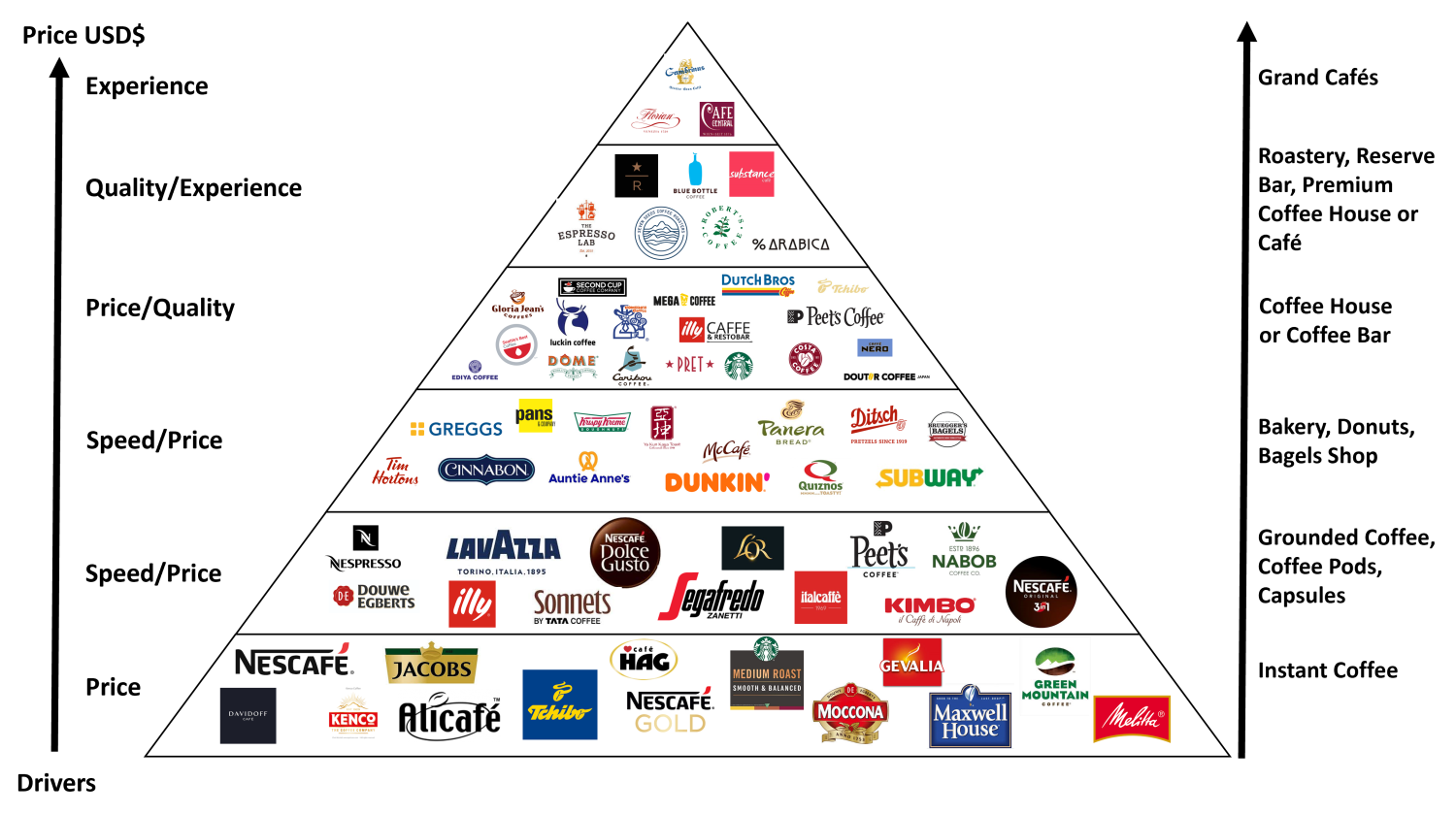Coffee tourism represents a captivating journey that allows enthusiasts and coffee lovers to explore the diverse flavors and rich cultures associated with their preferred brews.
This guide outlines premier coffee destinations, ranging from the verdant coffee plantations of Latin America to the vibrant cafés of Europe, as well as the various immersive coffee tours available in these regions.
Readers will gain insights into what to expect on a coffee tour, including coffee tastings, coffee workshops, and practical tips for planning their adventure, plus essential dos and don’ts to enhance their experience.
Engage with this guide and prepare to explore the world through the lens of coffee, appreciating the coffee geography and coffee heritage, one cup at a time.
Where Are the Best Coffee Destinations?
Coffee tourism has emerged as a significant niche, attracting coffee enthusiasts and coffee lovers from around the world to explore the rich and diverse coffee cultures present in various regions.
This journey enables travelers to visit renowned coffee destinations, where they can discover coffee farms, engage with local producers, and gain insights into the coffee history and traditions that shape this globally cherished beverage.
From the lush landscapes of Latin America to the dynamic coffee scenes in Africa and Asia, each destination provides unique coffee experiences that emphasize the intricate process of coffee production from bean to cup. This allows tourists to appreciate the terroir and coffee craftsmanship that contribute to specialty coffee.
1. Latin America
Latin America is recognized as one of the foremost coffee-producing regions globally, celebrated for its high-quality coffee farms that yield a variety of coffee beans with distinct flavor profiles.
Countries such as Colombia, Brazil, and Costa Rica are particularly noted for their exceptional coffee varieties, each providing a unique coffee tasting experience that embodies their local terroir.
Colombia is renowned for its smooth, well-balanced Arabica beans, while Brazil’s diverse coffee-growing regions produce earthy, nutty flavors, contributing to various coffee blends. In contrast, Costa Rica demonstrates a strong commitment to quality, showcasing bright, fruity coffees that are often cultivated under stringent environmental standards.
Tourists visiting these countries have the opportunity to participate in immersive coffee tastings and coffee workshops, allowing them to appreciate the nuanced profiles that reflect the region’s soils and climates.
Furthermore, many coffee farms implement sustainable practices and obtain certifications such as Rainforest Alliance or Fair Trade, underscoring their dedication to environmentally responsible cultivation methods and social responsibility.
2. Africa
Africa is widely recognized as the birthplace of coffee, with its rich origins contributing to some of the most sought-after specialty coffee beans globally.
This continent is home to renowned coffee-growing regions, such as Ethiopia and Kenya, both celebrated for their unique terroirs and distinct flavor profiles.
For example, Ethiopian coffees frequently exhibit floral notes and vibrant acidity, characteristics that reflect the diverse microclimates and fertile soil of the region. In contrast, Kenyan coffee is distinguished by its bold, fruity flavors and full-bodied profiles, influenced by high altitudes and specific wet processing methods.
Local coffee traditions hold significant importance in these communities, fostering social connections and cultural pride, which are often showcased in coffee festivals and coffee community events. Visitors have the opportunity to participate in immersive coffee tours, where they can observe traditional methods of cultivation and preparation firsthand.
This experience highlights the profound impact that coffee has on the livelihoods and identities of these regions, emphasizing the importance of direct trade and the coffee supply chain.
3. Asia
Asia presents a compelling landscape for coffee tourism, characterized by a harmonious blend of traditional and modern coffee production methods that yield a diverse range of coffee varieties.
Among these nations, Vietnam distinguishes itself as the world’s second-largest coffee exporter, renowned for its unique Robusta beans and distinct coffee brewing techniques, such as the traditional Vietnamese drip coffee prepared with sweetened condensed milk.
Indonesia, benefiting from its rich volcanic soil, produces high-quality Arabica varieties, particularly from regions such as Sumatra and Java.
These coffee-producing countries not only excel in their distinctive cultivation methods but also offer immersive experiences for coffee enthusiasts and coffee artisans. Tourists have the opportunity to engage in hands-on coffee workshops and tasting events, where they can explore the subtleties of coffee flavors, cultivation practices, and coffee brewing techniques, thereby enhancing their appreciation for this cherished beverage.
4. Europe
Europe boasts a vibrant coffee culture that has evolved significantly over the years, emphasizing artisanal coffee practices and distinctive cafés that attract both tourists and coffee aficionados, contributing to a thriving urban coffee scene.
From the lively streets of Rome, where enjoying espresso at a local bar is a daily ritual, to the inviting coffee shops in Malmö that embody the Swedish concept of ‘fika,’ there exists a diverse range of experiences for the discerning coffee enthusiast.
These locations frequently host local coffee festivals and coffee events that celebrate the art of brewing and foster a sense of community among connoisseurs. Specialty coffee shops have proliferated across the continent, offering meticulously sourced beans and innovative brewing techniques, thereby creating an ideal environment for individuals eager to explore the complexities of flavor and engage in coffee education.
Participating in coffee tourism in these countries reveals not only the rich traditions associated with this cherished beverage but also highlights its integral role in social interactions, making every cup a shared experience worthy of appreciation, often celebrated through coffee narratives and coffee stories.
5. North America
North America has established itself as a dynamic hub for coffee enthusiasts, characterized by a thriving coffee industry that boasts numerous roasteries and coffee shops committed to quality and sustainability.
This vibrant coffee culture has led to the emergence of specialty coffee, wherein coffee artisans devote themselves to refining brewing techniques and sourcing beans from carefully selected regions. Café owners and baristas collaborate closely with local roasters to offer unique coffee blends that showcase the diverse flavors of the continent.
Coffee travel programs have gained popularity, inviting both aficionados and novices to explore local farms and observe the intricate process of coffee production, including coffee harvesting and coffee processing. Additionally, tasting events that expertly pair coffee with regional cuisine create a sensory experience that celebrates distinctive flavors, thereby enhancing the appreciation of both coffee and local gastronomy, often referred to as food and beverage tourism.
What Are the Different Types of Coffee Tours?
Coffee tours are available in a variety of formats, each providing distinct insights into the coffee industry and catering to the diverse interests of coffee enthusiasts and coffee lovers.
These tours may include visits to coffee farms, where participants can learn about coffee production, sustainable coffee practices, and eco-tourism, as well as trips to local roasteries that highlight the art of coffee roasting and brewing.
Furthermore, café tours enable visitors to immerse themselves in the local coffee culture by sampling a range of specialty coffee beverages, all while fostering a deeper appreciation for the journey of coffee from farm to cup, known as the farm-to-cup experience.
1. Farm Tours
Farm tours offer an immersive experience for coffee enthusiasts, enabling them to observe the complete coffee production process from seed to cup, highlighting the importance of coffee geography and coffee landscapes.
During these informative tours, visitors have the opportunity to engage closely with local farmers, who are typically eager to share their unique stories, coffee artifacts, and expertise. Participants will gain valuable insights into the intricate methods involved in coffee harvesting and coffee processing, thereby understanding the labor and care invested in each bean.
The significance of terroir, which encompasses the environmental factors influencing coffee growth, including the role of coffee origins, will be emphasized, providing participants with a deeper appreciation for the distinct flavors that originate from specific regions.
These experiences not only enhance knowledge but also cultivate a meaningful connection to the coffee community and coffee enthusiasts groups.
2. Roastery Tours
Roastery tours are specifically designed for coffee enthusiasts and coffee artisans who wish to explore the art and science of coffee roasting.
During these immersive experiences, participants have the opportunity to observe firsthand how various roasting techniques enhance distinct flavor profiles in the beans, ranging from fruity and floral notes to rich and chocolaty undertones, as noted in cupping sessions. Attendees frequently engage in coffee tastings, allowing them to compare brews prepared using different coffee brewing methods, such as pour-over, French press, or espresso.
Through guided tastings, individuals develop the ability to discern subtle differences in acidity, body, and sweetness, which fosters a deeper appreciation for the complexity of each roast and coffee tasting notes. Gaining an understanding of the roasting process not only enriches their enjoyment of coffee but also empowers them with the knowledge necessary to identify their personal preferences in coffee brewing methods.
3. Café Tours
Café tours provide an enriching exploration of local coffee scenes, highlighting the distinct coffee culture and culinary pairings that characterize each region, often found in vibrant coffee neighborhoods.
As participants navigate charming streets adorned with a variety of cafés, they encounter a diverse array of flavors and aromas that narrate the unique coffee stories of each location. From artisanal brews meticulously crafted by skilled baristas utilizing locally sourced beans to traditional pastries that complement each sip, these establishments invite guests to immerse themselves in the essence of the area, often showcasing coffee-related souvenirs and coffee memorabilia.
Furthermore, many cafés host special events and coffee workshops, allowing patrons to enhance their knowledge of coffee brewing techniques or participate in coffee tastings that emphasize the rich tapestry of local cuisine. This immersive experience not only deepens one’s appreciation for coffee but also fosters a meaningful connection with the surrounding coffee community and its traditions.
What Can You Expect on a Coffee Tour?
A coffee tour is a comprehensive tourism experience that generally encompasses an in-depth examination of coffee production, a variety of coffee tasting sessions, and opportunities to engage with local farmers and roasteries.
Participants can anticipate acquiring insights into the historical and cultural significance of coffee within the region, along with hands-on activities that enhance their appreciation for this esteemed beverage.
The tours cover a wide range of topics, from exploring the subtleties of coffee flavor profiles to understanding sustainable practices. They are thoughtfully designed to cater to both casual consumers and dedicated coffee aficionados.
1. Learning About Coffee Production
Understanding coffee production represents a captivating component of any coffee tour, providing valuable insights into the journey of coffee from farm to cup.
The meticulous process of coffee harvest of ripe coffee cherries and the various coffee processing methods employed at each stage are crucial for developing the coffee’s unique flavors and characteristics. Enthusiasts will find great value in exploring the different coffee varieties, such as Arabica and Robusta, which contribute to the diverse range of tastes and aromas available in the market.
The importance of sustainable coffee practices in coffee cultivation is paramount; many producers are now adopting eco-friendly methods and seeking certifications such as Fair Trade and Rainforest Alliance.
These certifications not only ensure the ethical treatment of workers but also promote environmental stewardship, thereby enhancing the overall experience of enjoying a cup of coffee.
2. Tasting Different Types of Coffee
Tasting various types of coffee stands as one of the most enriching aspects of a coffee tour, enabling visitors to explore the diverse flavor profiles and aromas that specialty coffee presents.
Throughout this sensory experience, participants learn to discern subtle notes, such as fruity, nutty, or floral characteristics, which may indicate the coffee’s origin and processing methods. The significance of single-origin coffee cannot be overstated, as it provides a unique insight into the geographic and climatic influences on flavor.
Mastering different coffee brewing methods—be it pour-over, French press, or espresso—is essential for effectively extracting and emphasizing these intricate flavors.
By actively participating in the coffee tasting process, individuals enhance their appreciation for each cup, ultimately uncovering the rich tapestry of tastes that this esteemed beverage has to offer.
3. Meeting Local Farmers and Roasters
Meeting local farmers and roasters is a significant aspect of coffee tours, offering valuable insights into the coffee community and its cultural importance.
These interactions cultivate a greater appreciation for the complex relationships that exist within the coffee industry, enhancing not only the flavor of the beverage but also the narratives that accompany it. For example, many roasters actively collaborate with farmers to implement sustainable practices that benefit both the environment and local communities.
A notable partnership includes a small coffee cooperative in Guatemala that works directly with a roastery in Seattle. This relationship not only promotes fair trade practices but also supports reforestation efforts, allowing consumers to enjoy a rich cup of coffee while contributing to environmental sustainability.
Such meaningful connections enhance the overall coffee experiences, demonstrating how a simple beverage can embody coffee heritage and community collaboration.
How Can You Plan a Coffee Tour?
Planning a coffee tour requires meticulous consideration of various factors, including the selection of a destination, the booking of accommodations and transportation, and the making of reservations for tours and activities.
Coffee enthusiasts should begin by researching appealing coffee regions and the distinct experiences that each destination provides. Following this, it is advisable to create an itinerary that effectively balances exploration and relaxation.
Furthermore, establishing a budget for expenses is crucial to ensure a fulfilling and enjoyable coffee tourism experience.
1. Researching and Choosing a Destination
Researching and selecting a destination is a critical initial step in planning a successful coffee tour, as it enables enthusiasts to explore the distinct coffee tourism experiences available in various coffee regions.
Each region possesses its own unique coffee culture, shaped by local coffee traditions and flavors that impact brewing methods and tasting notes.
Potential travelers should thoroughly investigate how coffee is cultivated and prepared in their chosen area, as this knowledge can significantly enhance their appreciation for the beverage.
Coffee tours frequently vary considerably, offering a range of experiences from intimate workshops to extensive coffee farm visits. Unique opportunities may include:
- Cupping sessions
- Barista classes
- Participation in local coffee festivals that celebrate the rich coffee heritage of the drink
By exploring these factors, travelers can ensure a memorable journey filled with enriching and authentic encounters.
2. Booking Accommodations and Transportation
Booking accommodations and transportation is essential for ensuring a smooth and enjoyable coffee tour experience, enabling travelers to fully immerse themselves in the exploration of coffee culture.
To optimize a coffee-centric journey, it is advisable to select lodging in proximity to popular coffee hubs or renowned roasteries. Consider hotels or short-term rentals that not only provide comfortable accommodations but also offer convenient access to public transportation options, such as buses or trains.
This accessibility facilitates seamless travel between various coffee shops and neighborhoods. Developing a coffee travel itinerary can significantly enhance the experience; it should include local favorites, specialty cafes, and unique brewing methods.
By strategically planning routes and grouping nearby destinations, travelers can maximize their day without feeling rushed, ensuring that each sip of coffee contributes to a memorable and enriching adventure.
3. Making Reservations for Tours and Activities
Making reservations for tours and activities is a critical component of planning a coffee tour, enabling coffee enthusiasts to fully engage in coffee-related experiences.
Booking in advance is particularly important during peak seasons, as demand increases and popular workshops may fill quickly. By securing a spot early, enthusiasts can participate in distinctive activities such as artisan coffee workshops, immersive tasting events, and barista training sessions that enhance their understanding of the intricacies of coffee.
These experiences not only provide valuable insights into the craft but also facilitate networking opportunities with like-minded individuals who share a passion for coffee. Consequently, advance bookings are an essential step for anyone seeking to enjoy a seamless and enriching coffee journey.
4. Budgeting for Expenses
Budgeting for expenses is a critical aspect of planning a coffee tour, enabling travelers to fully engage in their experiences without the burden of financial stress.
By outlining potential costs in advance, individuals can establish a realistic budget that includes essential expenditures such as accommodations and transportation, as well as unique activities, including guided coffee tastings or visits to plantations.
It is prudent to allocate a portion of the budget for meals and souvenirs, ensuring a comprehensive and enjoyable experience. Additionally, setting aside funds for unforeseen expenses provides peace of mind, as circumstances may change and travelers may encounter opportunities that necessitate additional financial resources.
To optimize their budget, travelers should consider exploring package deals, researching free activities, or evaluating alternative lodging options, all while maintaining awareness of their overall spending.
What Are the Dos and Don’ts of Coffee Tourism?
Navigating the realm of coffee tourism entails a distinct set of guidelines that can either enhance or diminish the overall experience. Travelers are encouraged to seize the opportunity to explore various types of coffee while also respecting the local culture and customs that influence the coffee production process.
It is essential to understand sustainable practices and the implications of tourism on local communities to ensure a positive and responsible coffee tourism experience.
1. Do: Try New and Different Types of Coffee
One of the fundamental principles of coffee tourism is to remain open to exploring a variety of coffee types, such as specialty coffee and gourmet coffee, as this approach enriches the tasting experience and fosters a deeper appreciation for the beverage.
By venturing beyond familiar blends, individuals can uncover a wide range of flavors, from fruity and floral to rich and nutty. Each unique brew conveys a narrative of its origin, highlighting the diverse regions and climatic conditions in which the beans are cultivated.
Specialty coffee not only elevates the palate but also enhances the overall travel experience, encouraging enthusiasts to engage with local coffee culture and craftsmanship. Immersing oneself in this realm of artisanal brews transforms each sip into an exploration of various bean varieties and coffee brewing methods, potentially revealing new favorites that inspire a lasting passion for the appreciation of coffee.
2. Do: Respect the Local Culture and Customs
Respecting local culture and customs is essential during coffee tourism, as it reflects appreciation for the coffee communities that cultivate the coffee.
An understanding of regional coffee traditions can significantly enhance a traveler’s experience. For instance, visitors exploring Ethiopian coffee culture are encouraged to participate in the traditional coffee ceremony, which includes roasting green beans, grinding them, and brewing the coffee in a specialized pot known as a jebena. This hands-on involvement provides a unique coffee experience and deeper appreciation of local coffee heritage.
Engaging in this communal experience not only deepens one’s knowledge of coffee but also underscores its significance and symbolism within the local society. Such coffee experiences often include coffee tasting and cupping sessions, offering insight into the rich flavors and aromas of different coffee varieties.
Similarly, when visiting coffee farms in Colombia, travelers should be mindful of the customs of farm workers, such as seeking permission before taking photographs or participating in various coffee processing activities. Embracing these practices fosters a deeper connection with the local community and ultimately contributes to a more enriching and rewarding journey. Additionally, tourists can gain insight into the coffee harvest and farm-to-cup process, enhancing their appreciation of the intricate coffee supply chain.
3. Don’t: Disrupt the Coffee Production Process
It is crucial for tourists to refrain from disrupting the coffee production process, as such actions can adversely affect local farmers and undermine the integrity of coffee tourism. Observing responsible tourism practices ensures that the traditional coffee production methods and coffee craftsmanship of local artisans are respected.
Being mindful of one’s conduct during a coffee tour not only enhances the overall experience but also demonstrates respect for the time-honored traditions that local communities have developed over generations. Loud conversations or careless behaviors can easily distract skilled coffee artisans who are diligently engaged in producing their unique brews.
Tourists are encouraged to avoid touching equipment or interrupting workers, including baristas and roasteries staff, thereby allowing them to perform their tasks undisturbed.
Adopting sustainable tourism practices—such as supporting local cafes, purchasing from small producers, and participating in eco-friendly tour initiatives—promotes a deeper connection with the local culture while ensuring that the livelihoods of these communities are preserved and valued. Visitors might also explore direct trade opportunities, which further support the economic stability of coffee-producing regions.
4. Don’t: Leave a Negative Impact on the Environment
Tourists should remain cognizant of their environmental impact while engaging in coffee tourism, as sustainable practices are essential for the conservation of the ecosystems that support coffee production. Eco-tourism principles can guide travelers in reducing their carbon footprint and supporting organic coffee initiatives.
By making informed decisions, travelers can play a significant role in the preservation of biodiversity and the well-being of local communities. For example, utilizing reusable containers and utensils can substantially decrease the waste generated during coffee tours. Engaging with eco-friendly coffee travel options ensures that their journeys respect and protect natural coffee landscapes.
Furthermore, selecting eco-friendly tour operators that prioritize sustainability over profit can enhance the overall experience while supporting initiatives dedicated to environmental protection. Visitors can also interact with local farmers to gain insight into their practices, including sustainable coffee production methods, thereby fostering a deeper connection to the coffee they appreciate while promoting sustainable agriculture and responsible tourism.
Ultimately, even minor adjustments in behavior can yield considerable positive outcomes, turning each coffee journey into a step toward a more sustainable future. These steps contribute to the broader goals of agricultural tourism and eco-tourism, ensuring that coffee regions continue to thrive for generations to come.
Frequently Asked Questions
What is coffee tourism?
Coffee tourism is a form of travel that focuses on visiting farms, roasteries, and cafés around the world to experience the culture and production of coffee. It encompasses a wide range of activities including coffee tasting, coffee workshops, and exploring coffee plantations.
Why has coffee tourism become popular?
Coffee has become a staple in many cultures and there is a growing interest in learning about the origins and processes of the coffee we consume. Coffee tourism provides an immersive way to experience this, offering insights into coffee history, coffee innovation, and the diverse coffee traditions around the world.
What can I expect on a coffee tourism trip?
Depending on the location and type of tour, you can expect to visit coffee farms, see the roasting process, and try different types of coffee. Some tours also include cultural activities and food tastings. Additionally, you might attend coffee festivals, explore coffee markets, and participate in hands-on coffee brewing workshops.
Where are the best places for coffee tourism?
Some popular destinations for coffee tourism include Colombia, Ethiopia, Costa Rica, and Vietnam. However, there are also great coffee tours available in many other countries around the world, each offering unique coffee experiences and insights into regional coffee cultivations and practices.
Is coffee tourism only for coffee enthusiasts?
No, coffee tourism is for anyone who is interested in learning about coffee production and culture. Many tours cater to different levels of coffee knowledge and can be enjoyed by anyone, from casual coffee lovers to gourmet coffee aficionados.
How can I plan a coffee tourism trip?
You can plan a coffee tourism trip by researching different tour companies or destinations, and deciding on the type of experience you want. There are also travel agencies that specialize in coffee tourism and can help you plan your trip. Consider looking into coffee itineraries and travel guides provided by coffee enthusiasts and bloggers for more personalized recommendations.

Hi, I’m Bruno, a coffee lover who finds inspiration in every cup. Writing about coffee allows me to share my passion for its rich flavors, fascinating history, and the unique culture it creates. Whether it’s exploring brewing techniques or discovering new coffee trends, I enjoy turning my love for coffee into stories that connect with fellow enthusiasts. For me, coffee isn’t just a drink—it’s an experience, and I’m here to celebrate it one word at a time.




